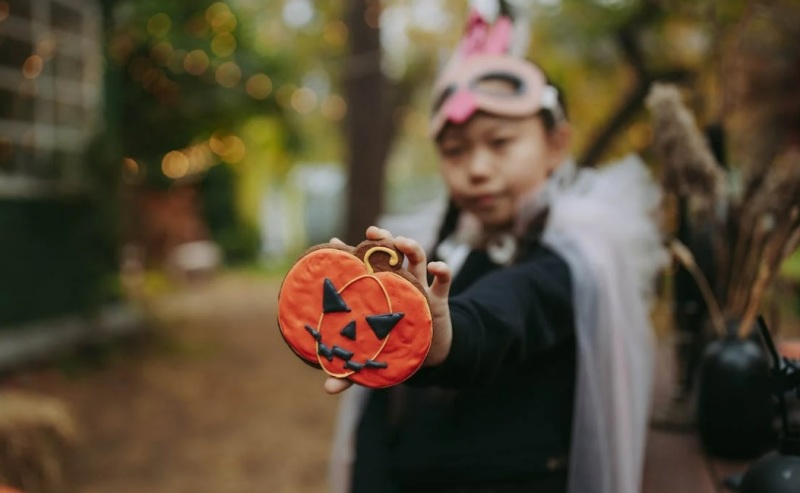
Halloween is among the yearly global traditions that many Christians and Catholics celebrate. It is also a somewhat divisive subject that Catholics and Christian believers debate whether to continue observing or ditching it altogether.
According to a recent survey by Lifeway Research, 71% of pastors admit to urging their congregations to invite relatives and friends to participate in Halloween activities. In 2016, the figure was just 67%.
Meanwhile, 58% of pastors this year encourage their church members to accommodate their neighbors' children who go trick-or-treating; in 2016, it was only 52%.
Additionally, 34% urge their congregations to give "gospel tracts" to kids doing the said Halloween exercise, compared to 26% in 2016.
One interesting finding from the survey is that 13% of pastors admit telling their church members to refrain entirely from participating in any Halloween activity. Lifeway Research revealed it was only 8% back in 2016.
With this finding, Lifeway Research Executive Director Scott McConnell had this to say:
"Few pastors simply ignore the fact that so many Americans participate in Halloween celebrations. Most pastors focus on the social nature of these celebrations, encouraging their congregations to engage with others outside their church," McConnell explained.
Also Read: Undercover Recruit, Former Members Disclose 'Shocking' Things Inside Cult-like Melbourne Church
To Celebrate or Not to Celebrate
So, should Christians celebrate Halloween or not? It depends on who you ask.
For Life Church Pastor Jamie Morgan, celebrating Halloween is like causing God disdain.
"Setting aside a day to celebrate evil, darkness, witchcraft, fear, death, and the demonic brings disdain to God. Period. A Christian celebrating Halloween would be like a Satan-worshipper putting up a nativity scene at Christmas while singing, 'Happy Birthday, Jesus!' The two just don't go together," Morgan argued in an op-ed column published by Charisma News in 2015.
Meanwhile, Stephen Rowland, a Columbia Daily Herald columnist with a Master's in biblical studies, believes that Christians should decide on their own whether or not they should observe the tradition. He added that Christian believers should likewise refrain from passing judgment on others who choose to celebrate Halloween.
Rowland explained that the apostle Paul had a way of arriving at decisions on similar issues, like in the case of eating meat that was offered to pagan idols.
"His rule was simple - if it violated your own conscience, then don't do it," he explained.
"If you really believe that having a jack-o-lantern or a costume is somehow inviting evil into your household because of pagan associations in the distant past, then, by all means, don't buy them. But don't level both barrels of your religious-convictions shotgun at your fellow believer because he/she doesn't care about pagan associations of hundreds of years ago. To them, it's simply having fun," Rowland told Distractify.
10 Halloween Fun Facts You Should Know
A Halloween article won't be complete without some tidbits to share with your family and friends. Here are 10 Halloween fun facts you should know:
The Irish legend of Stingy Jack inspired Jack o'lantern. The Irish people have a legend about a man named Stingy Jack who made a deal with the devil, which turned out to be his undoing. Jack was not accepted in either heaven or hell, which led him to wander around the world with a burning coal inside a carved turnip as his light. The Irish and Scottish people pioneered the creation of Jack's lanterns out of beets, turnips, and potatoes. When the tradition crossed North America, people used pumpkins instead, a tradition that continues today.
Halloween is older than Christianity. The Halloween we know today dates back over 2,000 years. The Celtic festival of Samhain (meaning "summer's end") inspired modern-day Halloween.
Irish immigrants led the spread and popularity of Halloween in the U.S. People from Ireland who escaped the potato famine in the 1840s brought the tradition to America. Initially, some pranksters caused all sorts of disturbance among communities during the 1920s. What we know today as trick-or-treating began in the 1930s as a means to control those pranksters.
It is the second-largest American commercial holiday. In the U.S. (and perhaps in many other countries), Halloween is second only to Christmas as the largest commercial holiday. In 2019, Americans spent almost $9 billion on Halloween activities and commercial products. In 2020, it went down to $8 billion due to the economic crisis brought on by the pandemic.
Candies take the largest share among all Halloween purchases. Halloween observers sure have sweet teeth since they spend the most on candies. Up to 95% of people buy them, while 75% say they spend their money on Halloween decorations. At least 65%, meanwhile, burn their cash on those scary costumes.
Candy corn used to be called "chicken feed" as an homage to America's agricultural heritage. Yes, that sugary treat you know today as candy corn was once called "chicken feed." It was a nod to the agricultural heritage of the United States.
New York City has the biggest Halloween parade in the country. The urban jungle welcomes some 2 million spectators annually whenever it holds its Halloween parade. The celebrations tend to outdo the previous year's, making the parade even more of a crowd drawer each year.
Reese's Cups rank as the most preferred and bought Halloween candy. Skittles, M&M's, Snickers, and even the good-old candy corn just trail behind Reese's Cups based on 15-year sales figures.
Animal shelters used to decline adoption requests for black cats. Animal shelters used to deny requests for adoption, particularly for black cats near Halloween observation. They thought people from satanic cults would only use cats for their rituals.
Kids love superheroes and princesses for their Halloween costumes. These two types of Halloween costumes sell the most among kids, based on data from the National Retail Federation. For dogs, a pumpkin is the top costume preference.
Related Article: New Synod Document Discusses Clergy Abuse, Women's Ordination, Other Former 'Taboo' Topics


















